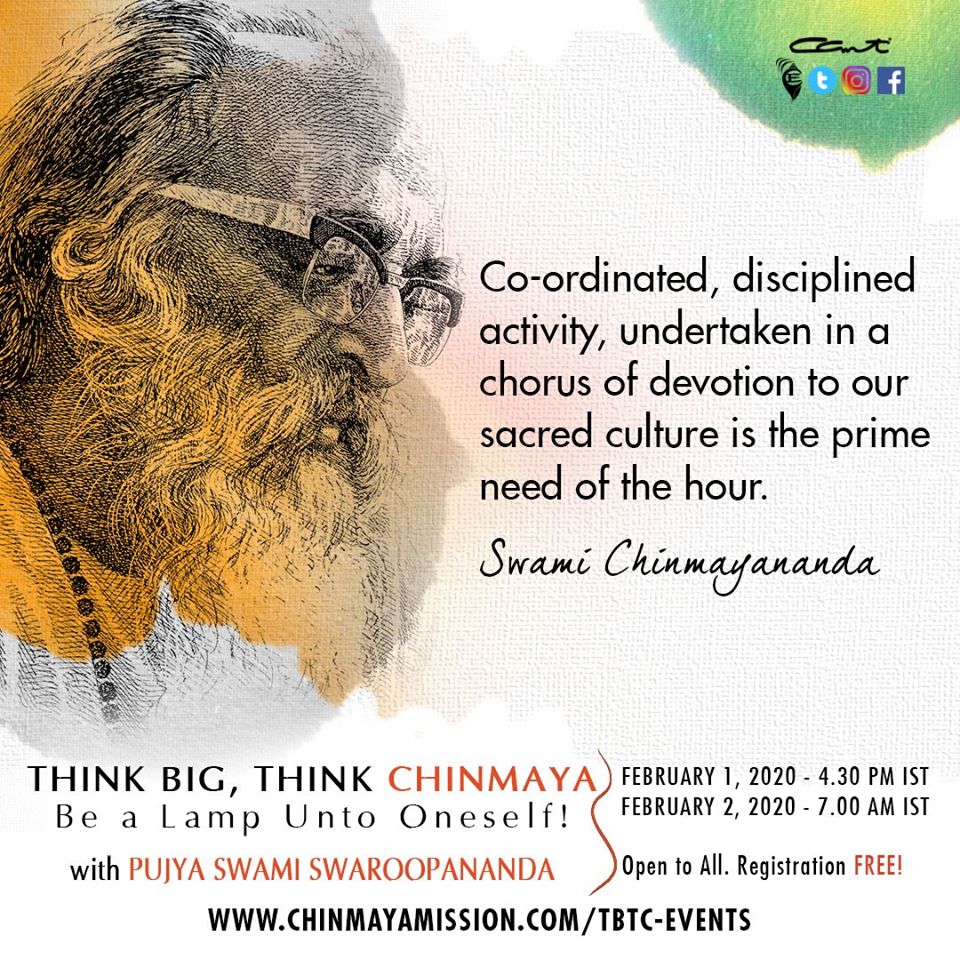Study of the Bhagavadgita : Chapter-4 : Post- 13. - Swami Krishnananda.
---------------------------------------------------------------------------------------------------------------------------
Wednesday, February 24, 2021. 07:18. AM.
Chapter 4: The Total Picture of Creation -4.
Post-13.
--------------------------------------------------------------------------------------------------------------------------
There is a great history behind this question of whether there is a substance behind sensations or whether the world is made up of sensations only. Subjective philosophers in the West, such as Berkeley, concluded that the whole world is nothing but sensations only. If these five sensations are removed from you, there will be no world, and your body will also not be there. But a difficulty arises in the mind due to its very structure because it believes the sensations are sensing something, and if something is not there to be sensed, what are the senses going to sense?
A question was put to Berkeley. “My dear Father,” (he was a clergyman) “what are your senses sensing if there is nothing to be sensed?” So he modified his doctrine a little, and his pure subjective idealism of only sensations got transformed into what is called objective idealism. The senses cannot know that the world exists unless the sensations operate. So inasmuch as the sensations tell you through their media of what may exist outside, you are seeing the world as conditioned by your sensations; the real world is not seen by you. The real world is cast in the mould of your sensations, and so you are not seeing the world as it is. You are seeing only the thing-as-such, as you may call it, but what that thing-as-such is, nobody knows, as it is cast in the mould of the five sensations.
But Berkeley agrees that something should be there in order that the senses may sense. That is God’s mind. The universe is God’s mind, the Cosmic Mind, which looks like a world in front of you; but you are not actually seeing the Cosmic Mind. You are not seeing God with your eyes; you are only sensing, in a distracted, fivefold manner, this one indivisible thing which is otherwise the Cosmic Mind. You are lodged in the mind of God even now, accepted; but you cannot touch Him, you cannot see Him, because your sensations are diversified. These diversified functions are connected with these potentials, as I mentioned – shabda, sparsha, rupa, rasa, gandha. These are forces.
Afterwards, these forces congeal into solidity in a particular permutation and combination process. These congealed forms of the five forces shabda, sparsha, rupa, rasa, gandha become space – or sky, as it is called – and air, fire, water, earth. In Sanskrit, sky or space is called akasha, air is vayu, agni is fire, apas is water, pritvi is earth. So this world of the physical elements of earth, water, fire, air, ether, space and sky – this world which you value so much, on which you are seated, which is attracting you and repelling you at the same time – is just the last concretisation of these forces shabda, sparsha, rupa, rasa, gandha which are the vibrations of space and time, which is one aspect of this cosmic omnipresence, Ahamkara. Thus, the objective side has been explained.
End.
Next - 5. The Karma Yoga Principle of the Bhagavadgita
To be continued ....
=========================================================================





Comments
Post a Comment